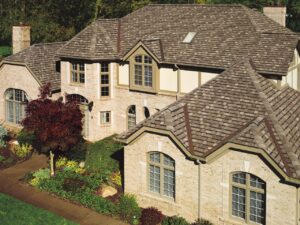Whether you’re looking to sell or simply take pride in your property, landscaping can make all the difference. But the key is to choose a service that’s experienced and professional.

Landscape professionals understand how to blend aesthetics with functionality, creating stunning outdoor spaces that reflect your style and complement your home’s architecture. They also offer valuable expertise and guidance throughout the project. Contact Stafford VA Landscaping for professional help.
A well-maintained landscape is the first thing visitors, neighbors, and prospective buyers see. In fact, studies have shown that homes with beautiful landscaping sell for more money than those without. Expert landscapers know how to maximize your property’s curb appeal by transforming your outdoor space into a tranquil, aesthetically pleasing garden with the right balance of flowers, trees, and shrubs.
A quality landscape not only enhances your home’s exterior and increases its value, it also offers a peaceful retreat for you and your guests. With thoughtfully placed plants, inviting pathways, and relaxing seating areas, your yard will become a picturesque setting to relax and entertain. The right landscape design can make your property stand out among the rest and convey a sense of pride, care, and professionalism to your guests.
Landscape enhancement services are often used to improve curb appeal, with services like garden design and planting, mulching, edging, seasonal cleanups, and maintenance providing the finishing touches. Lighting is another popular curb appeal element. It illuminates architectural and landscaping features, improves safety, and adds a warm, welcoming atmosphere to your property.
Professional landscapers offer a variety of landscaping options to complement your property’s natural setting, including trees and shrubs that thrive in your region. They can recommend the right species to create a unique, eye-catching combination of flowers and foliage that will look great throughout the seasons.
Incorporating hardscape elements, such as walkways, patios, retaining walls, water features, and other functional elements, helps to bring out the best in your property’s curb appeal. The addition of these elements adds texture, color, and contrast, creating visually appealing landscapes that complement your home’s exterior.
Lawn care and maintenance are key elements of a beautiful landscape, with regular mowing, fertilization, weed control, and aeration keeping your lawn healthy and vibrant. A well-maintained, lush green lawn is the foundation of a home’s exterior and conveys a sense of pride, care, and attention to detail.
Create Enhanced Outdoor Living Spaces
Having well-designed outdoor living spaces makes your property more appealing, both to guests and potential homebuyers. You can enhance your backyard with features like patios, fire pits, and outdoor kitchens that allow you to entertain friends and family, as well as relax in comfort. Additionally, you can increase your energy efficiency through thoughtfully placed trees that provide shade and help reduce cooling costs during the summer.
When working with a professional landscaping company, you can transform your landscape into a functional and enjoyable space for entertaining and relaxing. These contractors specialize in creating unique and aesthetically pleasing designs that reflect your personal tastes, needs, and lifestyle. This helps to create a cohesive and balanced landscape that will stand out from the rest of your neighborhood.
A professional landscaper can take into account the climate, soil conditions, and existing structures when creating a design plan for your yard. Then, they can recommend trees, shrubs, and flowers that will thrive in your landscape. For instance, they can use drought-tolerant plants that need less water to grow and save you money on irrigation and maintenance costs. They can also incorporate plants with seasonal interest that provide color throughout the year, and they can use textures to add visual appeal.
In addition to the plant elements of your landscape, it’s important to consider the hardscape. These are the non-plant elements of your garden, such as walkways, patios, retaining walls, and fire pits. These elements add structure and function to your outdoor space, and they can be designed in a variety of styles and materials, including wood, stone, and concrete.
You can even add a water feature to your landscape, such as a fountain, pond, or waterfall. These add tranquility and beauty to your outdoor space, and they can be crafted to complement the surrounding plant life and landscape architecture.
Landscaping and gardening projects can be overwhelming if you’re trying to do it all yourself. Hiring an expert landscape and garden contractor can help you save time, improve your results, and increase the value of your property.
Increase Your Home’s Market Value
A yard that is unkempt and uncared for is not only an eyesore, but it can also significantly reduce your property value. According to real estate professionals, curb appeal is one of the top factors in determining your home’s value. With that in mind, professional landscaping services can boost your curb appeal and increase your property’s value.
By adding trees, creating a walkway, and incorporating unique design features into your landscape, you can make your property stand out in the neighborhood. Not only will potential buyers notice, but they will be more likely to want to buy your property.
Landscaping isn’t just about curb appeal, though. It’s also about creating functional outdoor living spaces that are easy to maintain. For example, adding an outdoor fire pit and seating area can provide a great place for family gatherings or relaxing. In addition, a well-designed drainage system can help manage water runoff and prevent flooding, reducing maintenance costs.
When choosing a landscaping company, be sure to consider their experience and expertise. Look for a full-service provider that can handle all aspects of your project. They should have a track record of successful projects and a portfolio of previous work to show you. In addition, they should be licensed and insured. Lastly, ask about their sustainability practices to ensure they are following eco-friendly practices.
While it may seem like an investment, residential landscaping can deliver a significant return on your money when you decide to sell. The American Society of Landscape Architects reports that professional landscaping increases your home’s value by up to 15 percent at the point of sale.
So, if you’re considering selling your property in the future, invest in expert landscaping now to improve your curb appeal and create attractive outdoor living spaces. With a bit of effort and investment, you can turn your house into a stunning gem that will attract the most attention in the neighborhood. Reach out to Classic Gardens today to learn more about our landscaping services and how we can transform your property into a captivating sight.
Enhance Your Personal Enjoyment
A beautiful landscape enhances your outdoor living spaces. It can help you to relax, unwind and create memories with family and friends. Professional landscaping services will work with you to realize your vision for an outdoor paradise and bring it to life.
They can help you design areas for dining, relaxing and entertaining that are tailored to your home’s unique characteristics and how you use your space. Landscaping services can also ensure that your garden is free of weeds and allergens, making it enjoyable year-round.
Hiring professional landscaping services will save you time and effort so you can spend more time doing the things you love. It will also help you to avoid the costly mistakes that can be made by DIY-ers who try to take on large landscaping projects without the proper knowledge and experience.
Expert landscapers can offer advice on a wide range of topics, including maintenance tips and tricks, lawn care, soil health, which plants grow best in your region and even ways to improve water drainage and reduce erosion. They can also offer advice on how to minimize the impact your property has on the environment and how to support local wildlife.
Adding landscape lighting can transform your yard into an enchanting retreat after dark. It highlights architectural features, illuminates walkways and creates a sense of ambiance. Professionals can install a variety of lighting options that will suit your budget and taste.
When you invest in the right landscaping services, it will pay off for years to come. From enhancing your curb appeal to increasing your home’s value, professional landscaping can make all the difference. It can also give you a sense of pride in your property, creating a tranquil and inviting retreat just steps from your front door. So if you’re ready to enjoy your outdoor living space to the fullest, contact us today for a consultation. We look forward to helping you create the landscape of your dreams.

